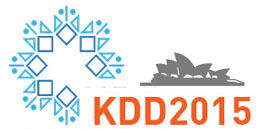Humanitarian challenges, including natural disasters, food insecurity, climate change, racial and gender violence, environmental crises, the COVID-19 coronavirus pandemic, human rights violations, and forced displacements, disproportionately impact vulnerable communities worldwide. According to UN OCHA, 235 million people will require humanitarian assistance in 2021 . Despite these growing perils, there remains a notable paucity of data science research to scientifically inform equitable public policy decisions for improving the livelihood of at-risk populations. Scattered data science efforts exist to address these challenges, but they remain isolated from practice and prone to algorithmic harms concerning lack of privacy, fairness, interpretability, accountability, transparency, and ethics. Biases in data-driven methods carry the risk of amplifying inequalities in high-stakes policy decisions that impact the livelihood of millions of people. Consequently, proclaimed benefits of data-driven innovations remain inaccessible to policymakers, practitioners, and marginalized communities at the core of humanitarian actions and global development. To help fill this gap, we propose the Data-driven Humanitarian Mapping Research Program, which focuses on developing novel data science methodologies that harness human-machine intelligence for high-stakes public policy and resilience planning. The proceedings of the 1st Data-driven Humanitarian Mapping workshop at the 26th ACM SIGKDD Conference on Knowledge Discovery & Data Mining, August 24th, 2020.
翻译:人道主义挑战,包括自然灾害、粮食无保障、气候变化、种族和性别暴力、环境危机、COVID-19 Corona病毒大流行、侵犯人权和强迫流离失所,对全世界弱势社区的影响格外严重。据联合国人道协调厅称,2021年将有2.35亿人需要人道主义援助。尽管这些危险日益严重,但数据科学研究仍然明显缺乏,无法从科学上为改善风险人口生计的公平公共政策决策提供科学信息。为应对这些挑战,数据科学工作分散,但它们仍然与实践相隔绝,容易在缺乏隐私、公平、可解释性、问责制、透明度和道德方面受到算法上的伤害。数据驱动方法的出现有可能扩大影响数百万人生计的高层决策中的不平等。因此,决策者、从业者和处于人道主义行动和全球发展核心的边缘化社区仍然无法获得数据驱动创新的好处。为填补这一空白,我们提议数据驱动人道主义绘图研究方案,重点是开发新的数据科学方法,利用人力资源信息,以获取公共政策和可解释性、问责制、透明度和道德。数据驱动力,在2020年8月26日的SDD-DMMM数据库上,人道主义数据映像会议第1号数据库记录。




